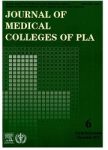Physical exercise reverses immuno-cold tumor microenvironment via inhibiting SQLE in non-small cell lung cancer
作者机构:Department of Sports MedicineHuashan Hospital Affiliated to Fudan UniversityShanghai 200040China Department of Sports MedicineShanghai General HospitalShanghai 200080China Department of Critical Care Medicinethe Affiliated Wuxi People’s Hospital of Nanjing Medical UniversityWuxi 214023JiangsuChina Department of Oncologythe Affiliated Wuxi People’s Hospital of Nanjing Medical UniversityWuxi 214023JiangsuChina Guangdong Pharmaceutical UniversityGuangzhou 510006China Institute of Acupuncture ResearchInstitutes of Integrative MedicineFudan UniversityShanghai 200433China Department of Cardiothoracic Surgerythe Affiliated Wuxi People’s Hospital of Nanjing Medical UniversityWuxi 214023JiangsuChina
出 版 物:《Military Medical Research》 (军事医学研究(英文版))
年 卷 期:2024年第11卷第4期
页 面:616-619页
核心收录:
学科分类:1002[医学-临床医学] 100214[医学-肿瘤学] 10[医学]
基 金:This work was supported by the National Natural Science Foundation of China(82172511) the Natural Science Foundation of Jiangsu Province(BK20210068) the Sanming Project of Medicine in Shenzhen(SZSM201612078) the Health Shanghai Initiative Special Fund[Medical-Sports Integration(JKSHZX-2022-02)] the Top Talent Support Program for Young-and Middle-aged People of Wuxi Municipal Health Commission(HB2020003) the Mega-project of Wuxi Commission of Health(Z202216) the High-end Medical Expert Team of the 2019 Taihu Talent Plan(2019-THRCTD-1)
主 题:Physical exercise Non-small cell lung cancer(NSCLC) Squalene epoxidase(SQLE) Tumor immune microenvironment(TIME)
摘 要:Dear Editor,Physical exercise has been shown to be associated with reduced cancer incidence and cancer-associated mortality[1,2],but the underlying mechanisms are *** regulation has emerged as one of the most prominent mechanisms explaining the effects of exercise on cancer[1,2].Physical exercise primarily lowers blood cholesterol and triglycerides,and protects against cardiovascular diseases[3].However,whether physical exercise can modulate cholesterol metabolism in tumor cells is currently unknown.



